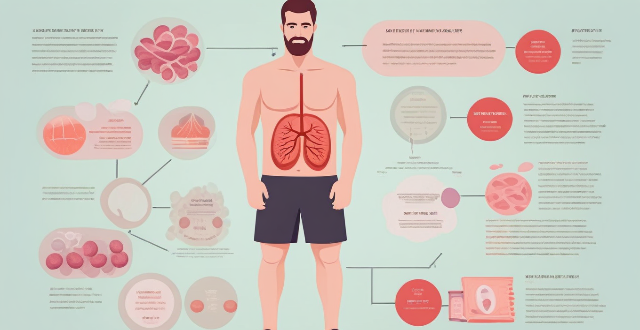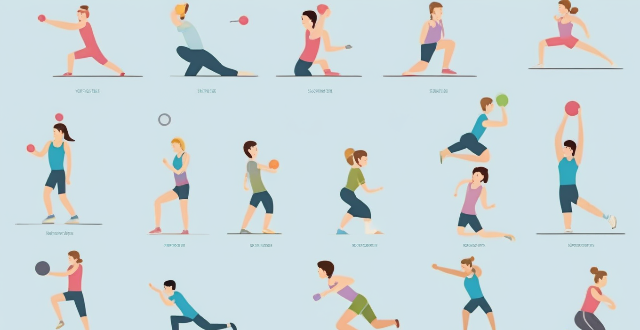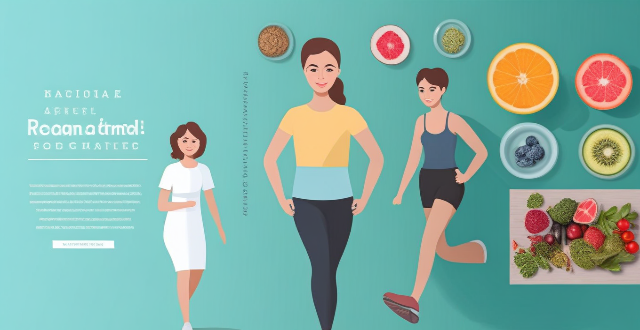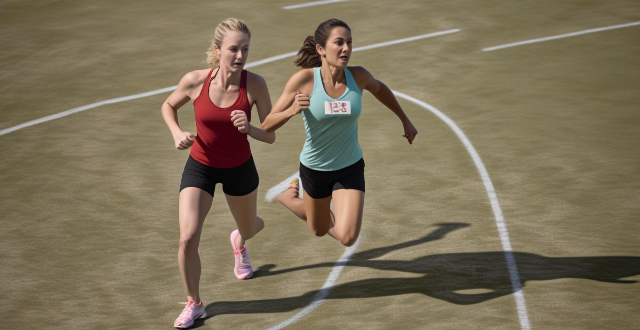Improvement Immune

Can exercise boost the immune system ?
Exercise can indeed boost the immune system through various mechanisms, including enhanced circulation, reduced inflammation, weight management, stress reduction, improved sleep, increased self-esteem and mental health, microbiome diversity, temperature regulation, prevention of chronic diseases, and social interaction. Regular moderate exercise is generally considered beneficial for the immune system, but it's essential to consult with healthcare professionals to determine the appropriate amount and intensity of exercise for individual needs and circumstances.

Is it true that certain superfoods can boost your immune system ?
Incorporating superfoods like citrus fruits, garlic, ginger, spinach, yogurt, nuts and seeds, blueberries, and turmeric into your diet can help support immune health by providing key nutrients such as vitamin C, vitamin D, zinc, protein, and antioxidants. These foods offer a range of benefits including boosting white blood cell production, reducing inflammation, supporting digestive health, and protecting against oxidative stress. However, it's important to maintain a balanced diet and lifestyle for overall immune support.

Can excessive training have negative effects on the immune system ?
Excessive training, or overtraining, can have negative effects on the immune system. Regular exercise enhances immune function by stimulating antibody and white blood cell production, reducing inflammation, and improving circulation. However, excessive training can cause chronic inflammation, oxidative stress, and hormonal imbalances that suppress immune function. Signs of overtraining syndrome include chronic fatigue, mood changes, and increased susceptibility to illness. To prevent overtraining and maintain immune health, individuals should follow a balanced training program, prioritize sleep, eat a nutrient-rich diet, and manage stress levels.

How does regular exercise contribute to boosting the immune system ?
Regular exercise has numerous health benefits, including boosting the immune system. It promotes increased blood circulation, reduces inflammation, helps in weight management, reduces stress, improves sleep quality, enhances gut health, increases antioxidant capacity, supports cardiovascular health, enhances mental health, and contributes to increased longevity. Incorporating regular physical activity into your lifestyle can support a strong and resilient immune system.

How can I improve my diet to boost my immune system ?
Improving your diet is one of the best ways to boost your immune system. Here are some tips on how you can do that: ## Eat a Variety of Foods Eating a variety of foods ensures that you get all the essential nutrients your body needs. This includes fruits, vegetables, whole grains, lean proteins, and healthy fats. Aim for at least five servings of fruits and vegetables per day. ### Fruits and Vegetables - Apples - Bananas - Berries - Broccoli - Carrots - Spinach ### Whole Grains - Oats - Quinoa - Brown Rice ### Lean Proteins - Chicken breast - Fish (such as salmon or tuna) - Legumes (such as lentils or chickpeas) ### Healthy Fats - Avocados - Nuts (such as almonds or walnuts) - Seeds (such as chia or flaxseed) ## Stay Hydrated Drinking enough water is crucial for maintaining a healthy immune system. Aim for at least eight glasses of water per day, and more if you're active or it's hot outside. You can also stay hydrated by drinking herbal teas or eating water-rich foods like cucumbers, melons, and strawberries. ## Limit Processed Foods and Sugary Drinks Processed foods and sugary drinks can weaken your immune system by causing inflammation in your body. Try to limit these foods and drinks as much as possible, and opt for whole, nutrient-dense foods instead. ## Consider Taking Supplements If you're not getting enough vitamins and minerals from your diet, consider taking supplements. Some common supplements that may help boost your immune system include vitamin C, vitamin D, zinc, and probiotics. However, be sure to talk to your doctor before starting any new supplements.

How long after starting a new exercise routine can improvements in immunity be expected ?
Regular exercise has numerous health benefits, including improved cardiovascular health, weight management, and mental well-being. One of the lesser-known benefits is its positive impact on the immune system. Improvements in immunity can be observed within a few weeks of starting a regular exercise program, depending on individual factors such as current fitness level, intensity and duration of exercise sessions, and overall lifestyle habits. By incorporating regular physical activity into your daily routine, you can enhance your immune function and enjoy the numerous other health benefits associated with exercise.

Is there a specific duration or intensity of exercise needed to improve immune function ?
The relationship between exercise and immune function is complex, but research suggests that regular physical activity can enhance the immune system. However, both the duration and intensity of exercise play significant roles in achieving this beneficial effect. The American Heart Association recommends at least 150 minutes of moderate-intensity aerobic activity or 75 minutes of vigorous-intensity activity per week for adults. Engaging in prolonged periods of endurance exercise can temporarily suppress immune function due to increased stress on the body. Light activities like walking or yoga can still offer immune benefits by reducing stress and promoting overall health. Regular moderate to high-intensity exercises, such as jogging, cycling, or strength training, are generally considered optimal for enhancing immune function. Adequate rest and recovery are crucial for maintaining a healthy immune system. Combining different types of exercises (aerobic, strength training, flexibility work) can provide a well-rounded approach to enhancing immune function. Staying hydrated and consuming a balanced diet rich in nutrients supports both exercise performance and immune health. Other lifestyle habits, including sleep quality, stress management, and avoidance of harmful substances, also play a vital role in supporting immune function alongside exercise.

How does consistent physical activity affect the immune system in relation to chronic disease prevention ?
The article discusses the impact of consistent physical activity on the immune system and its role in preventing chronic diseases. It explains that regular exercise can increase the number and activity of immune cells, reduce inflammation, and improve overall health. The article also provides recommendations for exercise and emphasizes the importance of incorporating physical activity into one's lifestyle to prevent chronic diseases and improve well-being.

Are there any particular sports or exercises that have been studied for their impact on immunity ?
This article discusses the impact of various sports and exercises on immunity, including aerobic exercise, resistance training, high-intensity interval training (HIIT), and yoga/meditation. It highlights the positive effects of these activities on immune function when performed regularly and appropriately, such as increased blood flow, enhanced immune cell production, improved cardiovascular health, and reduced inflammation. However, it also emphasizes the potential negative effects of excessive exercise or overtraining on immunity, urging individuals to find a balance between physical activity and rest.

What types of physical activities are most effective in enhancing immunity ?
Regular physical activity is crucial for enhancing immunity, with various types of exercises offering specific benefits. Aerobic exercises like jogging, cycling, and swimming improve cardiovascular health, respiratory function, and overall fitness, while also reducing stress and inflammation. Resistance training, including weightlifting and yoga, builds muscle mass, promotes hormone balance, and supports gut health. High-Intensity Interval Training (HIIT) boosts metabolism and cardiovascular health. Incorporating a mix of these activities into your routine can significantly enhance immunity.

Can vaccines be used to treat cancer or other non-infectious diseases ?
Vaccines are traditionally used to prevent infectious diseases by stimulating the immune system to recognize and attack specific pathogens. The possibility of using vaccines for the treatment of cancer or other non-infectious diseases is being explored, with a focus on modulating the immune response rather than stimulating it. Cancer vaccines, including preventive and therapeutic types, aim to stimulate the immune system to recognize and destroy tumor cells. For autoimmune diseases, researchers are exploring ways to use vaccines to dampen overactive immune responses or retrain the immune system. Vaccines are also being investigated for their potential in treating other chronic diseases such as Alzheimer's and heart disease. While promising, the application of vaccines in treating non-infectious diseases faces significant challenges, including identifying unique targets and balancing immune responses. Advancements in immunology and vaccine technology offer hope for new treatments that could benefit millions worldwide.

Does consistent exercise reduce the risk of catching colds and flu ?
Regular physical activity is known for its health benefits, including potential protection against colds and flu. Studies suggest that exercise can enhance immune system function by improving circulation and inducing a mild inflammatory response. However, the evidence is mixed, with some studies showing a clear link between regular exercise and reduced respiratory infections, while others do not. Potential mechanisms include improved immune surveillance, stress reduction, and increased circulation of immune cells. To benefit from these effects, it is recommended to engage in moderate to high levels of physical activity, such as 150 minutes of moderate aerobic activity or 75 minutes of vigorous activity per week, along with strength training exercises. Overtraining should be avoided, as it can weaken the immune system. Good hygiene practices are also essential for preventing colds and flu.

How do virus variants emerge ?
Virus variants emerge due to evolution, influenced byVirus variants emerge due to evolution, influenced bycombination, host immune influenced by factors like mutation, recombination, host immune response, and environmental factors. Mutations can make viruses more infectious or resistant to treatments, while recombination results in new viruses with characteristics from different parent viruses. The host's immune system drives the virus to mutate and develop new variants that can evade the immune response. Environmental factors like temperature and exposure to chemicals can also influence virus evolution. Understanding these mechanisms is crucial for preventing and controlling viral diseases.

How can data analytics help identify areas for energy efficiency improvements in industry ?
Data analytics is crucial for identifying opportunities for energy efficiency improvements in industry. It enables real-time and historical monitoring, benchmarking, process optimization, predictive maintenance, and demand response management. These insights help companies reduce energy waste, cut costs, and minimize environmental impact.

How can I improve my self-evaluation skills in the workplace ?
Self-evaluation is a crucial skill in the workplace, allowing you to reflect on performance and set goals for improvement. To enhance this skill, set clear SMART goals, track progress, seek feedback, remain objective, reflect on experiences, celebrate successes, identify areas for improvement, and stay open to change. This process should be ongoing, with regular practice leading to greater success over time.

How often should I practice to see improvement in my golf skills ?
Golf improvement requires consistent practice, and the frequencyGolf improvement requires consistent practice, and the frequency your skill level, goals, and the frequency of your sessions depends on your skill level, goals, and availability. Assess your current skill level and set realistic goals to create a practice plan that includes both on-course and off-course activities. Beginners should aim for at least three practice sessions per week, while intermediates can do two to three and advanced players one or two. Make each session count by focusing on specific goals and tracking progress. Consistency is key, so stick to your practice plan and adjust it as needed based on your progress.

What are the benefits of urban greening projects ?
Urban greening projects offer a multitude of benefits including improved air quality, climate regulation, water management, enhanced aesthetics and livability, mental and physical health improvements, community building, habitat creation and preservation, food production, job creation, energy conservation, and tourism attraction. These initiatives aim to increase the amount of greenery in cities, such as parks, gardens, green roofs, walls, street trees, and other forms of urban forestry. The advantages of urban greening are multifaceted and contribute significantly to the improvement of urban environments for both residents and wildlife.

How often should I use a language learning app to see significant improvement ?
To see significant improvement with a language learning app, it's recommended to use the app daily for at least 10-15 minutes, setting weekly targets and focusing on consistency over intensity. Combining app use with real-world interactions and adjusting your routine based on progress tracking are also key strategies.

Can sports be used as a tool for personal growth and self-improvement ?
The text discusses the various ways in which sports can be used as a tool for personal growth and self-improvement. The author highlights the following aspects: - Mental toughness and resilience: Facing challenges and overcoming failure through sports can cultivate mental toughness and build resilience. - Teamwork and communication: Working together and effective communication are essential skills developed through team sports, which can enhance interpersonal relationships and group dynamics. - Discipline and time management: The structured approach required in sports can improve personal organization and time management skills, along with goal setting and strategic thinking. - Physical health and well-being: Sports contribute significantly to physical health by promoting fitness and endurance, and can also improve mental health by combating depression and anxiety. - Leadership and initiative: Sports provide opportunities for individuals to step up as leaders and develop problem-solving abilities, encouraging proactive behavior. - Self-confidence and self-esteem: Achieving mastery in sports can boost an athlete's confidence and self-esteem, fostering a positive self-image. - Adaptability and learning agility: Sports require athletes to adapt quickly to new tactics or game plans, encouraging a mindset of continuous learning that extends beyond the sporting realm. Overall, the text emphasizes that sports offer a comprehensive toolkit for personal development, encompassing benefits that extend far beyond the playing field. Engaging in sports can be a powerful catalyst for self-improvement and personal growth.

How long does it take to see improvements in cardiorespiratory fitness from starting an exercise routine ?
When starting an exercise routine to improve cardiorespiratory fitness, noticeable changes can occur within weeks, but significant and lasting improvements typically take several months of consistent training. Factors affecting improvement rates include baseline fitness level, workout frequency and intensity, age, health status, nutrition, recovery, and genetics. To maximize progress, set realistic goals, mix up your routine, monitor your progress, stay consistent, and get adequate rest.

Is there any improvement in the processor of the new iPhone model ?
The new iPhone model features a faster processor with improved performance, energy efficiency, graphics capabilities, and machine learning abilities.

What kind of customer feedback has been received so far for the new product ?
The new product has received mostly positive feedback, withThe new product has received mostly positive feedback, with user-friendly interface, speed However, there have been concerns about compatibility issues, software bugs, and pricing. Some customers also mentioned the need for additional features and improvements in customer support services. Overall, the feedback will be used to make necessary improvements and meet customer expectations.

Are there any specific exercises or drills for skill improvement in basketball/football/tennis, etc. ?
Topic: Skill Improvement Exercises and Drills in Basketball, Football, and Tennis Basketball: - Dribble the ball with alternating hands and in a figure 8 motion to improve ball handling skills. - Practice shooting free throws and spot shooting to enhance accuracy and consistency. - Work on lateral movement and closeout drills to improve defensive positioning and quickness. Football (Soccer): - Pass the ball against a wall and in a triangle formation to improve passing accuracy and touch. - Practice shooting at targets and receiving passes before shooting to enhance shooting accuracy and speed. - Work on marking and tackling drills to improve defensive skills and technique. Tennis: - Hit crosscourt groundstrokes and alternate forehand and backhand shots to improve accuracy and consistency. - Practice serving to targets and focusing on second serves to enhance serving reliability and placement. - Work on lateral movement and net approach drills to improve court coverage and net play.

How does regular exercise contribute to overall health management ?
This text discusses the importance of regular exercise for overall health management, highlighting its physical, mental, and emotional benefits. It emphasizes that exercise not only helps maintain physical health but also significantly contributes to mental and emotional well-being. The article lists various ways in which regular exercise contributes to overall health management, including improving cardiovascular fitness, aiding in weight management, enhancing muscle and bone health, boosting the immune system, preventing chronic diseases, reducing stress, improving mood, enhancing cognitive function, boosting self-esteem, providing opportunities for social interaction, and contributing to personal achievement. The text concludes by emphasizing that regular exercise is a crucial tool for managing overall health and that incorporating it into one's lifestyle is one of the best investments one can make for their health and well-being.

How does exercise influence self-esteem ?
Exercise has a profound impact on self-esteem, positively influencing confidence, body image, and mental health. Physical benefits include weight management through fat reduction and muscle tone, as well as improved cardiovascular health and immune system function. Mental benefits include stress reduction through endorphin release and mindfulness, and enhanced cognitive function with improved memory and problem-solving abilities. Social benefits come from community building through group activities and support systems, as well as personal achievement through goal setting and feedback. Overall, regular physical activity can significantly enhance self-esteem by promoting physical, mental, and social well-being.

How does sleep impact reaction time and coordination in sports ?
Sleep is a critical determinant of athletic performance, significantly influencing reaction time and coordination. Adequate rest is crucial for muscle recovery and cognitive functions after daytime activities. Studies show that approximately 50%-78% of elite athletes suffer from some form of sleep disorder, with about 25% experiencing severe disorders. Shortened sleep duration negatively affects athletic abilities such as strength and anaerobic capacity. It also increases the risk of injuries by up to 1.7 times in those sleeping less than 8 hours per night. Proper sleep enhances cognitive functions, including decision making and reaction time, which are critical for success in sports. Sleep plays a vital role in the consolidation of motor skills, essential for coordination and precision in sports. Adequate sleep can reduce injury risks by up to 60%, suggesting better muscle recovery and maintenance of physical coordination. Short naps (20-30 minutes) can significantly improve alertness, attention, and overall mental state, leading to better performance. For athletes with sleep deficits, naps have been shown to ameliorate physiological and cognitive conditions, enhancing athletic performance. Combining a short nap with caffeine consumption can be an effective strategy to reduce post-lunch drowsiness and boost afternoon performance. Athletes aged 25 and above tend to report poorer sleep quality than their younger counterparts, indicating varying sleep needs across different age groups. Female athletes are more likely to experience sleep issues, necessitating tailored sleep strategies. Youth athletes should aim for 8 to 10 hours of sleep to support their developmental needs, while adult athletes should target 7 to 9 hours of sleep to ensure adequate recovery and performance optimization.

What are the ethical considerations in vaccine distribution ?
Vaccine distribution is a complex process that involves several ethical considerations. These considerations are crucial to ensure that the distribution is fair, just, and equitable. Here are some of the key ethical considerations in vaccine distribution: ## Fairness One of the most important ethical considerations in vaccine distribution is fairness. This means that everyone should have an equal opportunity to access the vaccine, regardless of their socioeconomic status, race, ethnicity, or geographic location. To achieve this, it is essential to establish transparent criteria for prioritizing groups for vaccination. ### Criteria for Prioritization - **Healthcare workers and first responders**: These individuals are at high risk of exposure to the virus and play a critical role in managing the pandemic. - **High-risk individuals**: People with underlying medical conditions or compromised immune systems are more susceptible to severe illness from COVID-19. - **Vulnerable populations**: Elderly adults, people living in congregate settings (such as prisons or homeless shelters), and those with limited access to healthcare should be prioritized. - **Essential workers**: Workers in critical infrastructure sectors, such as transportation, food production, and energy, should be given priority to maintain societal functioning. ## Justice Another ethical consideration in vaccine distribution is justice. This involves ensuring that the distribution process does not exacerbate existing inequalities or create new ones. For example, if only wealthy countries receive vaccines while poorer nations are left without adequate access, this could perpetuate global health disparities. ### Addressing Inequalities - **Global cooperation**: International collaboration is essential to ensure equitable vaccine distribution worldwide. - **Financial support**: Wealthy nations and organizations should provide financial assistance to help low-income countries acquire vaccines. - **Technology transfer**: Sharing knowledge and technology related to vaccine production can help increase global capacity and reduce dependence on a few manufacturers. ## Transparency Transparency is also a crucial ethical consideration in vaccine distribution. This includes being open about the decision-making process, criteria for prioritization, and progress in vaccine distribution. Transparency helps build trust among the public and ensures that the process is accountable and subject to scrutiny. ### Enhancing Transparency - **Public communication**: Regular updates on vaccine distribution plans and progress should be provided through various channels, such as government websites, social media, and press conferences. - **Stakeholder involvement**: Engaging with community leaders, advocacy groups, and other stakeholders can help ensure that diverse perspectives are considered in the decision-making process. - **Data sharing**: Providing access to data on vaccine supply, allocation, and administration can help monitor progress and identify areas for improvement.